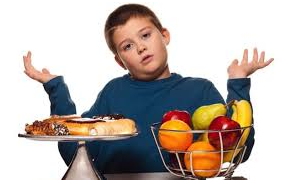It looks like the next decades will stand witness to a dramatic rise in incidence of weight-related diseases like Type 2 diabetes, hypertension, heart disease, certain cancers, as well as bone problems. This projection is because 37 percent of children (in the US) aged 2 to 19 are overweight and about 16 percent are obese according to the data of the Centers for Disease Control and Prevention (CDC). This is not where childhood obesity problems end, there are more to contend when one considers the havoc it can cause on the mental health and emotional states of these kids.

The psychological effects of weight problems on kids cannot be underestimated because these can be harsh and can have lifelong consequences. The extreme emotions can easily push a kid to the edge as they become suicidal and violent towards themselves and other people. Now if you need to talk to a doctor to find out the psychological manifestations of childhood obesity problems, that's great. Still, here are some of them:
1. It is normal for children to seek approval and acceptance from others in their course of growing being up.
This explains why they develop or acquire a sense of their identity from the way they are perceived by others. Failing to get that approval or perceiving that they are different, not appreciated or liked and even discriminated from other "normal" kids are very damaging to their concept of self.
2. Since the human culture has little regard for people who are overweight, these kids can't help but feel low self-esteem and depression.
Depression is common among obese children along with feelings of insecurity and inferiority. In response to their survival mode, they may try to rig their defenses manifesting behaviors such as being the "clown" or the "wallflower" of the party. It is also common for some to resent their situation, which is manifested by high-risk behaviors and oppositional-defiant disorders. Sense of defeat and hopelessness, on the other hand, can be indicated by being invisible, reclusive, and socially isolated. It's important to talk to a doctor to see how this can be remedied.
3. The teasing experienced while growing up can worsen a child's negative perception of himself.
Teasing is a form of bullying directed at disarming the wits and confidence of the obese child. It is a usual expectation that teasing emanates from the kids in the neighborhood, in the school, in the playgrounds and community parks. Sadly, there are also adults who engage in teasing obese kids like the teachers and family members. This is an unwritten affirmation from people who are supposed to understand and these make matters worse. You don't need to become a doctor to understand how such can affect the mind of a young child.
4. Obese people constantly live with discrimination from the time they discovered they are obese to adulthood.
They are constantly stared at or get a second look especially in elevators, public transport, and other crowded places where they are taking more space than normal. They get attention when buying outfits and need try on clothes especially those that come in limited sizes or when attending dressed-up occasions like Junior-Senior Promenade and weddings.
Obesity and its ensuing psychological effects can affect a child in the worst possible way. If you think your child is suffering from it, you need to know more about it to find out how you can nip the problem in the bud. Online doctors are on standby to help you deal with the problem, so don't hesitate to get in touch with them.
